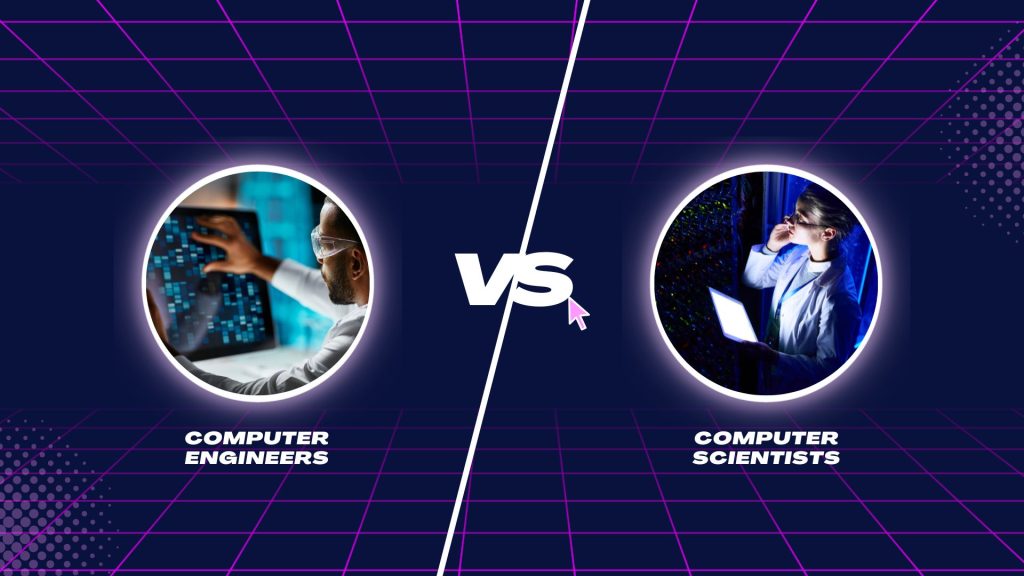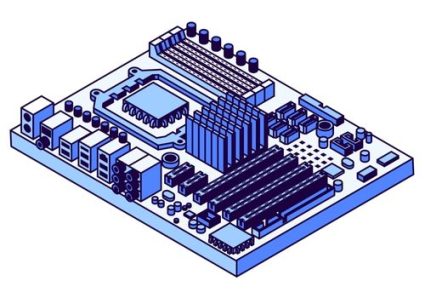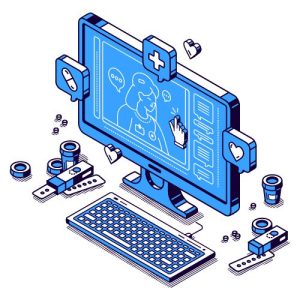What’s the Difference Between Computer Engineers and Computer Scientists?

What is the difference between a computer engineer and a computer scientist?
Computer engineers and computer scientists have many of the same duties and work with the same technologies, but they also have key differences.
Both jobs require a solid understanding of various programming languages, software development tools, and other specialized skills. However, they also may require different education and training to succeed in their fields.
If you are interested in a career as a computer engineer or computer scientist and want to learn more about the different job roles that each title requires, continue reading this article. We’ll explore the similarities and differences between these two titles as well as what you can do to find success in either field.
Table Comparison: Computer engineers vs computer scientists
A computer engineer studies the design of computer systems, including hardware and software systems. A computer scientist, by contrast, focuses more on theoretical principles to solve problems.
A computer engineer can work in a wide variety of fields including engineering, science, and research. However, a computer scientist often focuses on subjects like programming, math, and statistics.
This table gives you a detailed comparison of the differences between a computer engineer and a computer scientist.
| Aspect | Computer Engineer | Computer Scientist |
|---|---|---|
| Focus | Hardware and software integration, computer systems design. | Theoretical foundations of computing, algorithms, data analysis, and research. |
| Skills | Blend of hardware and software skills, engineering principles. | Focus on theoretical and algorithmic knowledge, research skills. |
| Areas of Study | Digital systems, computer architecture, embedded systems. | Algorithms, data structures, artificial intelligence, machine learning. |
| Hardware Emphasis | Strong focus on computer hardware, electronics, and circuits. | Primarily software-focused, less emphasis on hardware design. |
| Software Emphasis | Focus on software development, system integration, and firmware. | Emphasizes software development, algorithm design, and data analysis. |
| Engineering | Integrates computer systems into various applications and devices. | Primarily focuses on theoretical aspects and software development. |
| Application Areas | Hardware design, IoT, embedded systems, computer networks. | Software development, machine learning, data analysis, algorithms. |
| Roles | Computer systems designer, network engineer, firmware developer. | Software engineer, data scientist, machine learning engineer. |
| Mathematics | Often includes applied mathematics in electronics and systems design. | Emphasizes theoretical mathematics, algorithm analysis, and modeling. |
| Research | Less emphasis on research compared to computer science. | Primarily focuses on research, theory, and advancing computing knowledge. |
| Career Paths | Hardware design, systems engineering, network engineering. | Software development, research, academia, data analysis. |
| Industry Focus | Hardware and embedded systems, electronics manufacturing. | Software development, academia, research institutions, technology companies. |
| Degree Types | Bachelor’s in Computer Engineering, Master’s, and PhD. | Bachelor’s in Computer Science, Master’s, and PhD. |
| Toolset | Mix of hardware and software tools, programming languages, and engineering software. | Focus on programming languages, algorithms, data analysis tools. |
| Examples | Designing computer hardware, creating embedded systems. | Developing algorithms, analyzing large datasets, creating AI models. |
Computer Engineering
Computer engineers design, develop, and implement computer hardware, software, or other digital systems. Because they are experts in both computer science and engineering, computer engineers have a solid understanding of both fields.

They help to create new hardware, as well as improve existing systems. These professionals often work on large-scale computer systems or systems that run industrial equipment.
Computer engineers need a solid background in mathematics, physics, and other sciences. They also need to have a solid understanding of electronics and the other elements that go into creating hardware systems.
While computer engineers often work on hardware, they can also work on software. For instance, they might also focus on designing efficient software systems or improving the security of software systems.
Computer Science
Computer scientists are experts in the field of computer science. These professionals study algorithms, problem-solving techniques, programming languages, and other topics related to computers and data.

Computer scientists often work on large-scale projects with enterprise architects and other roles to help analyze data or create new software to help solve problems. They might also work on research projects to search for better algorithms or better programming tools.
Computer scientists can work anywhere, including private companies, government organizations, or universities. They need a solid background in math, statistics, and other sciences. Finally, they also need to have good programming skills and understand how to apply those skills to create new or improved software systems.
While computer science is a field that can be pursued by anyone with a good education, some computer scientists specialize in a certain area, like web development or data analysis.
Key Similarities Between Computer Engineers and Computer Scientists
Here are some of the largest similarities between computer engineers and computer scientists:
How to Become a Computer Engineer and Scientist
You’ve learned that one key difference is that computer science is focused on the software side of things, such as understanding the principles behind how the software works. Whereas a computer engineer might focus on creating computer hardware, understanding how electronics work, or designing efficient computer systems.
Computer engineers typically have a bachelor’s degree in engineering and pursue a master’s or Ph.D. degree in engineering in order to further their careers. Some employers prefer to hire those with a certain certification, like an IT certification or a project management certification.
An IT certification is designed for those who want to be proficient in computer science so it’s a good way to get started in that field. Whereas software development certification helps engineers make informed decisions about which software development tools to use.

Related Programming
15 Careers That Use Python Programming
12 Best Python IDEs for Programming
The Ultimate Coding Guide for Beginners: A Step-by-Step Walkthrough
Top 10 Programming Languages to Learn and Why
How to Become a Computer Systems Analyst [4 Steps]
The Transition from Arts to Computer Science
25 Uses and Applications of Python Programming
5 Best Modded Minecraft Hosting Providers